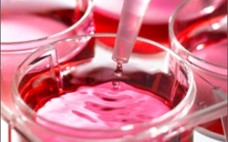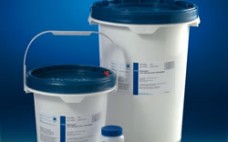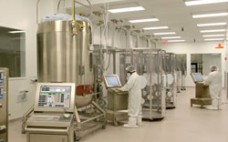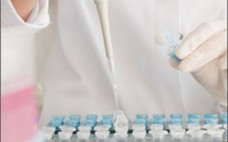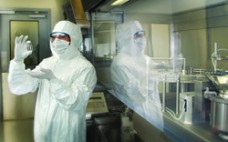The BioProcess International Conference is your one-stop industry resource for driving down costs; improving quality; and achieving rapid, robust, and resilient process development and manufacturing. This is where challenges are explored, solutions are uncovered, and opportunities are developed — at the largest and most highly respected event solely dedicated to biopharmaceutical manufacturing. New This Year New, unpublished data in every conference session Reports from the FDA, EMA, and leading industry players on biosimilars and biobetters Sessions on managing global manufacturing…
Author Archives: BPI Contributor
Meeting Increased Demands on Cell-Based Processes By Using Defined Media Supplements
As the demand for cell-derived products is rapidly increasing, there are huge pressures on the biomanufacturing industry’s production capacity requirements. To keep up with this demand, more focus is being put into media development strategies for optimizing output from cell culture systems. Serum-based media have traditionally been used to address the individual nutrient requirements of animal cells used in manufacturing protein products, but are now being gradually phased out due to inconsistencies and potential contamination risk.
These factors have created a demand for development of serum-free media that deliver optimal cell growth and productivity. This white paper looks at the challenges facing biopharmaceutical manufacturers today and the role of defined media supplements in addressing those.
Increased Load of DNA-Based Oligonucleotide on TSKgel SuperQ-5PW (20) Resin
Oligonucleotides are entering clinical trials in increasing numbers. In many ways, their entry into the clinic mirrors the development of protein therapeutics in the late 1980s and early 1990s. On the other hand, the purification process for an oligonucleotide therapeutic is very different from that for a protein. Typically one high-resolution, high-load step is used rather than a train of capture, intermediate purification, and polishing columns. TSKgel SuperQ-5PW (20) resin — a 20-µm particle size anion-exchange medium — is becoming…
Global Marketplace
Syringe Technology Product: Dual-chamber Lyo-Ject syringe and V-LK cartridge Applications: Delivery of lyophilized, liquid-powder, and liquid-liquid mixtures Features: Vetter offers two efficient and user-friendly systems for freeze-dried parenteral drugs: the dual-chamber Vetter Lyo-Ject syringe and dual-chamber V-LK cartridge. Lyophilized drug is contained in one chamber; diluent in the other. Reconstitution occurs immediately before administration in a few simple steps. This technology simplifies administration, increases API yields (by reducing overfill), and improves dosing precision. Syringes come in 1-mL, 2.5-mL, and 5-mL…
From the Editor
Bonjour! I am writing this from Nice, France, on the last day of the eighth annual BPI European Conference and Exhibition organized by our London-based Informa Life Sciences colleagues. Despite the attraction of some exquisite spring weather (a welcome respite for me from the rain-drenched Pacific Northwest), sessions were well attended till the very end, and discussions were lively and productive. This event was organized into five tracks: manufacturing strategies, process optimization, economics and QbD; cell…
Global Marketplace
Shaker–Incubator Product: Multitron II system with shaker-bag option Applications: Cultivation of mammalian, insect, or plant cells Features: A Multitron II unit (50-mm orbit) with shaker-bag option enables 1- to 10-L cell cultures in disposable bags. Direct gassing of air or air–CO2 mix provides pH stability, and media temperature is controlled by air inside the incubator chamber. Up to three 2-L or two 10-L bags, or one 20-L bag from a number of manufacturers can be accommodated. The system also works…
Navigating the Biopharmaceutical Regulatory Pathway: Replacing Undefined Raw Materials with Chemically-defined Substitutes
With market demands increasing, biopharmaceutical producers are constantly looking for ways to enhance product quality while reducing costs and risk. One way to meet these changing demands is to replace animal-derived supplements with chemically-defined substitutes. In this educational webcast, Dr. Michael Titus, Director of Quality Management and Regulatory Compliance with BD Biosciences, outlines the regulatory pathway involved in making such a switch. Dr. Titus will discuss:
• A background on the uses of supplements in the cell culture production process;
• Change control & risk management;
• And the regulatory path of making the switch to chemically-defined supplements.
Join Dr. Titus as he demonstrates how chemically-defined supplements can boost performance, reduce risk and increase consistency in commercially marketed biopharmaceutical products.
Blank Slate Biomanufacturing: Designing the Ideal Operation from a Blank Sheet of Paper
If you could start with a blank sheet of paper, what would your biomanufacturing operation look like? Robust, adaptable, cost-effective and efficient probably come to mind, but how do you get there? In this educational webcast, Parrish Galliher, Founder and CTO of Xcellerex, takes an in-depth look at the strategies involved in designing the ideal biomanufacturing facility from a blank slate. You’ll learn how to optimize your operation to:
• Increase Speed
• Enhance Flexibility
• Decrease Risk
• Improve Economics
View this webcast to discover the steps for maximizing your biomanufacturing process.
Key Aspects of Managing Early Phase Development Programs for Long Term Success
From selection of a cell line to release of the first clinical batch, product and process developers make decisions that have timeline, financial, and regulatory consequences. As contract manufacturing becomes the norm rather than the exception in our industry, it is important that a Sponsor and CMO make the best use of each other’s expertise for maximum benefit to product and patients. In this presentation, Dr. George Koch, Chief Scientific Officer for Contract Manufacturing and Director of Project Management with Fujifilm Diosynth Biotechnologies, provides insight into:
• Selecting a CMO
• Process and Method Development
• The First Tox Lots
• The First Clinical Lots
View this on-demand educational webcast to learn more about manufacturing best practices for preclinical activities.
Fill, Finish and Testing of Phase I/II Drug Products
Florida Biologix, a full service CMO for Phase I/II biologics, has significant experience with a variety of aseptic liquid fill projects. This presentation walks you through key considerations and decisions you will need to make when outsourcing a fill. This webcast discusses the major considerations involved in the process, such as:
• Timeline
• Component, Volume & Testing
• Documentation
• Execution
• Shipping, Handling and Storage
The presentation provides information that anyone looking to outsource a clinical batch liquid fill needs to know to help ensure a successful outcome.

